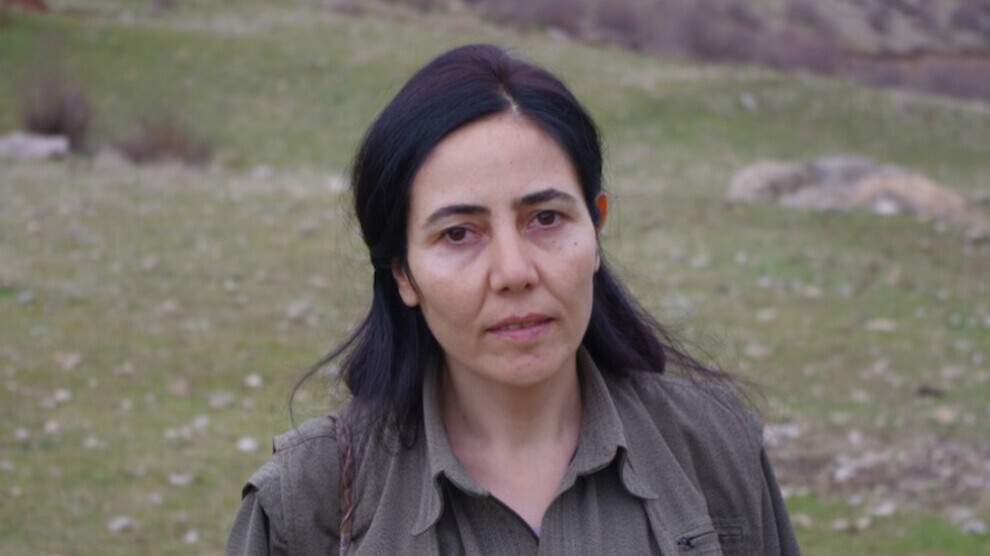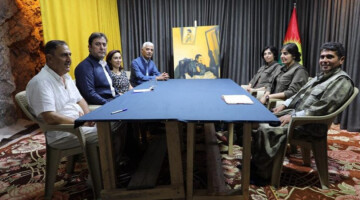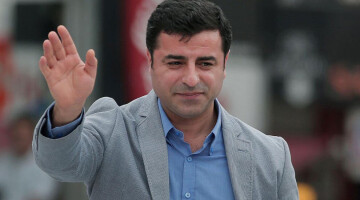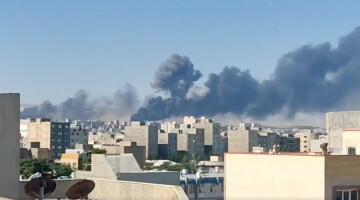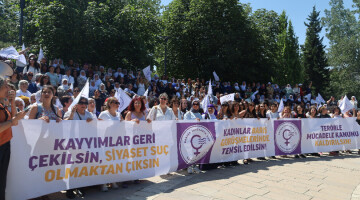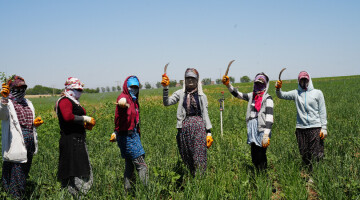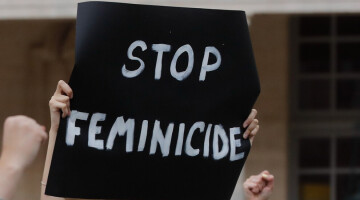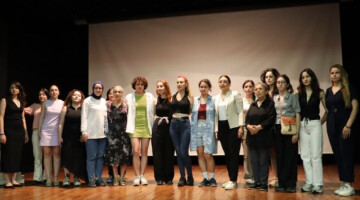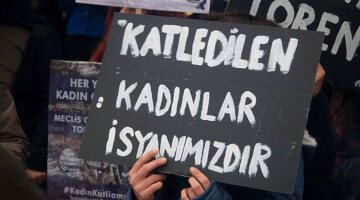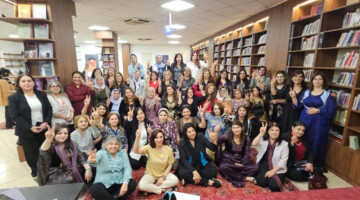PAJK (Kurdistan Women's Liberation Party, Partiya Azadiya Jin a Kurdistan) Coordination Member Ronahî Serhad said that a new radical search and ideological questioning developed in the theory of women's liberation, "A New Feminist Theory" prepared for this purpose. For Serhad, foundations of a new beginning are introduced with the "21st Century Woman Manifesto" and "Feminism for the 99 Percent" debates. Women who struggle by transcending the system are building a new system.
PAJK Coordination Member Serhad answered ANF questions. The first part of the conversation is as follows:
What legacy of struggle did 2020 leave for women?
If we draw the right conclusions from the results achieved in 2020, we can create a perspective of 2021. The start of the struggle for women was 8 March. Kurdish women took to the streets on 8 March with the slogan "Women Will Change the World" and "If Women Stop, the World Stops" in many parts of the world. We can't just look at these as street rallies. Various protests, including massive dance performances, developed. There was an increase in the union struggle by going on strikes and a continuity in the resistance of political prisoners. There has been a legitimate-legal struggle against the sexist laws that keep women under control. Actions were taken to bring political, social, economic, cultural, educational and health problems on the agenda.
Cooperation was the target of the women's protests. They opposed the policies of rape, violence, occupation, massacre and immigration. They put forward the necessity of joint organization, joint defence and joint struggle for the solution of these problems. They unleashed the power of change. These reactions did not develop spontaneously or periodically. Common grounds for both organization and opposition to the system have expanded. This made the anti-system movement alive and permanent. We can say that it has become a global struggle.
As the system crisis is global, the anti-system struggle has become widespread and globalized. Women led the struggle for democracy and freedom. We have witnessed this since 8 March. Realizing that they are the social power of change, women acted consequently and in a planned manner. They displayed will and determination as makers of social policy. They were in the streets as subjects, leaving behind the idea of being victims. They reclaim their rights and put forward the solution, were self-confident, did not hesitate to pay a price, they were courageous and resisted.
Another remarkable aspect: From young women to various occupational groups, women have been the driving force that unites all social segments and directs them to the same goal by eliminating the distances created by social and cultural differences. This was achieved by the fact that the focus of the struggle was male-dominated violence and sexist laws. Huge rallies and protests against harassment, rape, and the killing of women took place everywhere. The women held the nation-state institutions and officials to account, but they did not expect too much. They did not rely on parliamentary politics and promises. They revealed the dysfunctionality of the institutions called civil society, which are an extension of the state and reconcile the women's struggle against the power and women. They made politics by applying direct participatory democracy in streets and strike areas. It is a very important difference when we compare it with the previous years.
What about Kurdish women?
The Kurdish Women's Movement, as a movement that has been growing since the 90's, celebrates 8 March every year with much enthusiasm. It brought it to the agenda with radical actions in accordance with its historical value. It fought against the genocidal, assimilation, denialist policy of the fascist Turkish state regime and misogyny as a female guerrilla with her gun, and it fought against ISIS, united in the YPJ. For the transformation of sexism, they continued the activity of organizing society under colonialist conditions by risking execution and arrest. They struggled against the European and NATO forces, which watch over the denial, annihilation of the war of mentality, and the AKP regime that spreads nationalism-religious fundamentalism and fosters hatred towards the Kurdish and they did not cease to shout the truth against the black propaganda that terrorized and prevented our Kurdish Freedom Movement.
So, can we say that women's movements were able to focus the perceptions of society on the issue of women's freedom?
Wherever we turn our eyes to, we encounter problems. Women's movements generally took action in 2020 in terms of achieving the goal, as it should be on the agenda, and spoke their words in different and rich ways. Yes, they managed to change the perception of society. It was not that easy. In a world in which every day new forms of violence are experienced, it is difficult to keep up and come up with a prompt response. Yet, we have managed to keep women at the core of the main political agenda, as the root of most problems are coming from the attitudes and approaches towards women. What was that? The issue of women's freedom was no longer a claim, sexism was radically questioned and discussed as a system problem, a new social life system was discussed instead, and it took the lead in creating it itself. Seeing that the current organizations are not enough, the vital necessity of organization and the determination of women to create their own self-defence grew. The campaigns, activities and actions with different names such as "We will not sacrifice another woman", "end to state-male violence", "killings of women are political," Defend Rojava "," We will not obey "and other different names were the formulation of the truth we mentioned.

